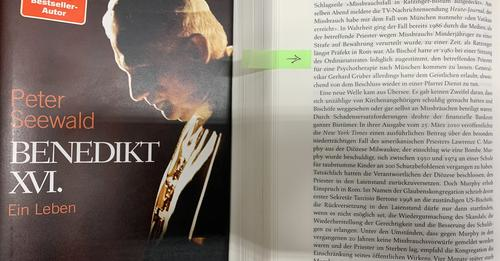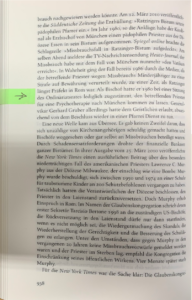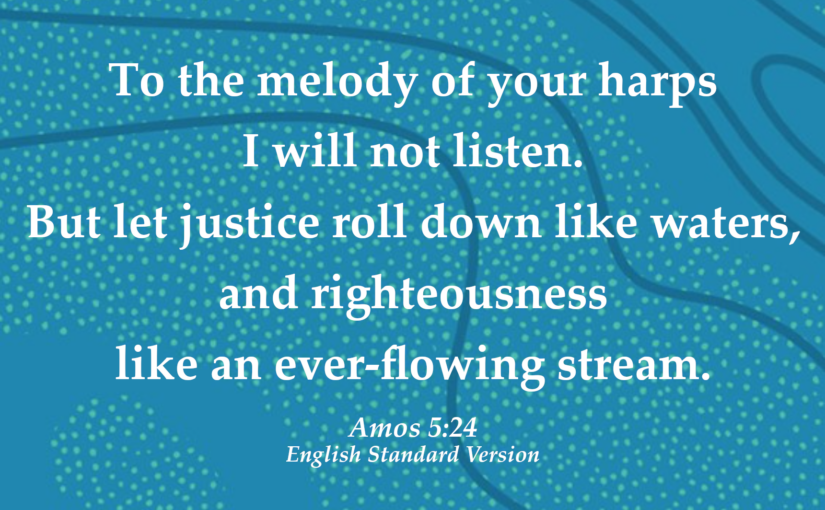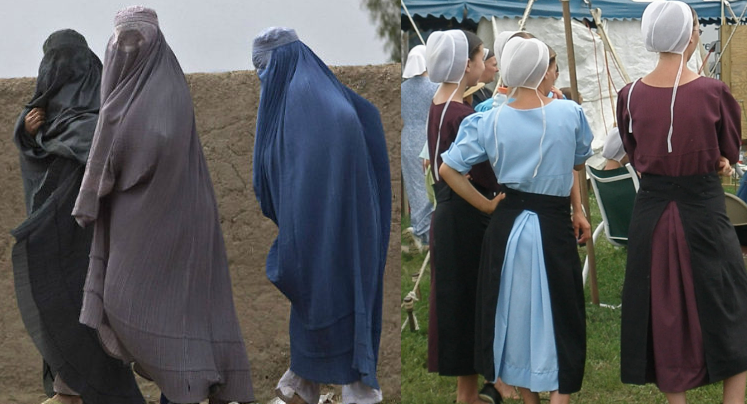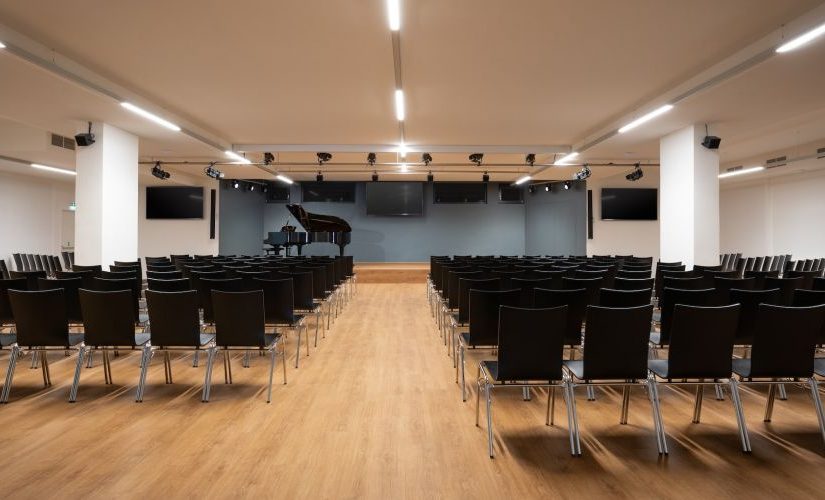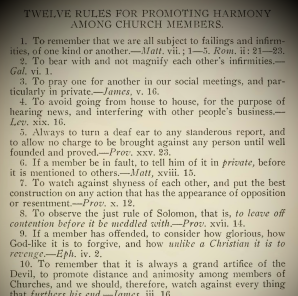Why I consider even a merely insinuated comparison of conservative Christians and Islamist fundamentalists to be scandalous
A few days ago this Facebook post was shared, without comment, by an Austrian Christian leader:
“Women can work but not be leaders” (Taliban). Now where have I come across that before?
My criticism of this was dismissed by this leader as “more than exaggerated”, and others agreeed with him or even denied that it constituted such a comparison. Someone else said that my criticism/protest suggested that the comparison was apt. Only one commenter agreed with me and said that he thought the comparison inappropriate.
I have since deleted my crititcal comment because I am not really interested in conducting a public debate with this brother; however, since I suspect that with the Taliban take-over in Afghanistan there will be more of these comparisons I would like to lay out why I consider these inappropriate.
I want to first of all express my appreciation for those who admitted that this post was aimed at conservative Christians; I think that it is rather dishonest to deny this.
Then I would like to point out that it is not at all my intention to defend the one or the other side in this debate of the role of women in the church; my own position on this is not at all fully or finally developed; more on this later.
It is also clear that “the world” which is, after all, critical of Christianity will draw such comparisons and will associate conservative Christians with Islamist extremists; after all, that is why the term “fundamentalist”, which originally was the self-designation of Christians who wanted to hold on to the fundamental truths of the faith, has by now become a derogatory term used for all sorts of extremists, from radical environmentalists to Islamist terrorists like ISIS, Al Kaeda, or the Taliban.
What really bothered me about this post and the comments that followed was first of all the fact that these came from Christians, and in the case of the post itself from a Christian who is active in a number of ecumenical initiatives which maintain that Christians from different traditions, who hold to very different theological positions, should nevertheless deal with each other respectfully. To suggest this comparison is not dealing respectfully.
After all, the position of conservative Christian churches who restrict women from holding leadership positions is based on their understanding of Scripture; specifically on their understanding of the words of the Apostle Paul, for example in the first epistle to Timothy, “I do not permit a woman to teach or to exercise authority over a man; rather, she is to remain quiet” (1 Timothy 2:12 ESV). One may or may not share this understanding, but one should never lose sight of the fact that the people in these conservative churches are Christians, brothers and sisters in Christ, for whom Christ died. This is why Paul’s words in Romans 14 came to mind, where he says, “Who are you to pass judgment on the servant of another? It is before his own master that he stands or falls. And he will be upheld, for the Lord is able to make him stand.” (Romans 14:4 ESV).
The second reason I consider this comparison so inappropriate is the fact that the Taliban and other Islamist extremists not only limit women’s access to leadership roles but suppress and oppress them in a multitude of other ways, threatening them with forced marriage, physical violence, and even death. By making this comparison one inevitably associates conservative Christians with all these forms of oppression.
Of course the same is true when one tries to associate the rejection of lived-out homosexuality by conservative Christians with the persecution of homosexual people by Islamist extremists, as when ISIS in Irak murdered them by throwing them off tall buildings. Christians have indeed in the past failed to treat homosexual people with respect; but to simply point out that the Bible considers lived-out homosexuality as contrary to the created order is no-where near on a par with violent persecution.
Now, as far as my personal position on these issues:
I have not come to a definitive view on the question of women and leadership in the church. I find the Roman Catholic rejection of women priests more logically consistent than the rejection of women preachers in an Evangelical context; the question of women in church leadership is a lot less clear in my view. However, I find the manner and tone, in which this conflict is handled on both sides of the issue extremely destructive, both in the Roman Catholic church and in the Evangelical movement. Unfortunately the Protestant Churches in Germany and Austria, as well as the main Anglican Churches in the UK and North America , provide prime examples of what conservative Evangelicals have always said: that the acceptance of women clergy goes hand in hand with the abandonment of biblical Christianity in all sorts of other ways, and that once some tenet of the faith is made optional, it won’t be long before it is abandoned completely.
I believe that this whole debate rests, ultimately, on a major misunderstanding: that a person in a leadership position is somehow better or more valuable than everybody else. This is a very unbiblical idea; Scripture tells us that whoever wants to be a leader should first of all be a servant of all (Matthew 20:26-28); it also tells us that one should not strive for leadership positions (James 3:1)
It is my considered view that women who insist on wanting to be pastors or leaders in a church where the official position or leadership does not allow this, instead of either submitting to the existing policy and leadership or else finding another church are just as destructive as conservative Christians who use all sorts of political agitation to try and change the policy of a church which permits female pastors and leaders, or as Christians of either persuasion who publicly condemn each other and each other’s churches.
After all, it isn’t as if this only applied to women. The majority of men are not leaders, either. And men who for whatever reason are not called to leadership positions in the church also have to live with it; no-one who is not called to a leadership position by a church can insist on his or her calling to this position.
In this context I am reminded of something that was repeatedly stressed in the church we attended in Texas: that only a limited numbe of men are called by the church to be elders, but that there are others, both men and women, who function as leaders, by virtue of their exemplary life and the wise counsel they give others. We can all aspire to be such leaders.
I have sat through several years of delegates’ conferences where a particular sister persistently strove to be recognized as a pastor; I have also sat through several years of church assemblies where a particular brother tried in vain to be elected to the elder board of his church; in neither case did these increasingly desparate efforts make for peace or glorify God.
And on the subject of homosexuality:
Scripture is pretty clear that sex has its place only with the marriage of one man to one woman. I have more respect for homosexual people who acknowledge this and clearly admit that they are unable or unwilling to follow Scripture in this, than for people who deny this fact.
This biblical verdict excludes all sorts of things, such as pre- and extra-marital sex between men and women, as well as all sex between men or between women. It also excludes same-sex marriage. Thus, if a church claims to follow the Bible as the basis of its faith and practice, then these things are not acceptable in the church. However, the state is not the church; in most cases today it is a secular state governed democratically, and it can regulate things differently. As an evangelical Christian I don’t really have too much of a problem if the secular state wants to authorize same-sex marriage, as long as it doesn’t demand that churches recognize such relationships as marriages and even bless them. I also believe that homosexual people, just as all people, are created in the image of God and as such deserve to be treated with respect, and it really isn’t my business how people outside the church lead their lives. Within the church it is the church’s business to regulate these things in accordance with the Word of God, and a state which claims to grant freedom of religion should not really interfere.
In both of these areas Christians should be open and stand for their convictions, and it is o.k. to criticise those whose convictions differ, as long as this criticism is expressed respectfully: it is the lack of respect which I found offensive and disappointing about the referenced Facebook post.
Note: the picture at the top of this post combines a picture of some Amish women, as stand-ins for conservative Christian women, and a picture of some Muslim women, each in what would be considered typical clothing. Needless to say, these pictures do not have a direct connection to the subject under discussion.
__________



